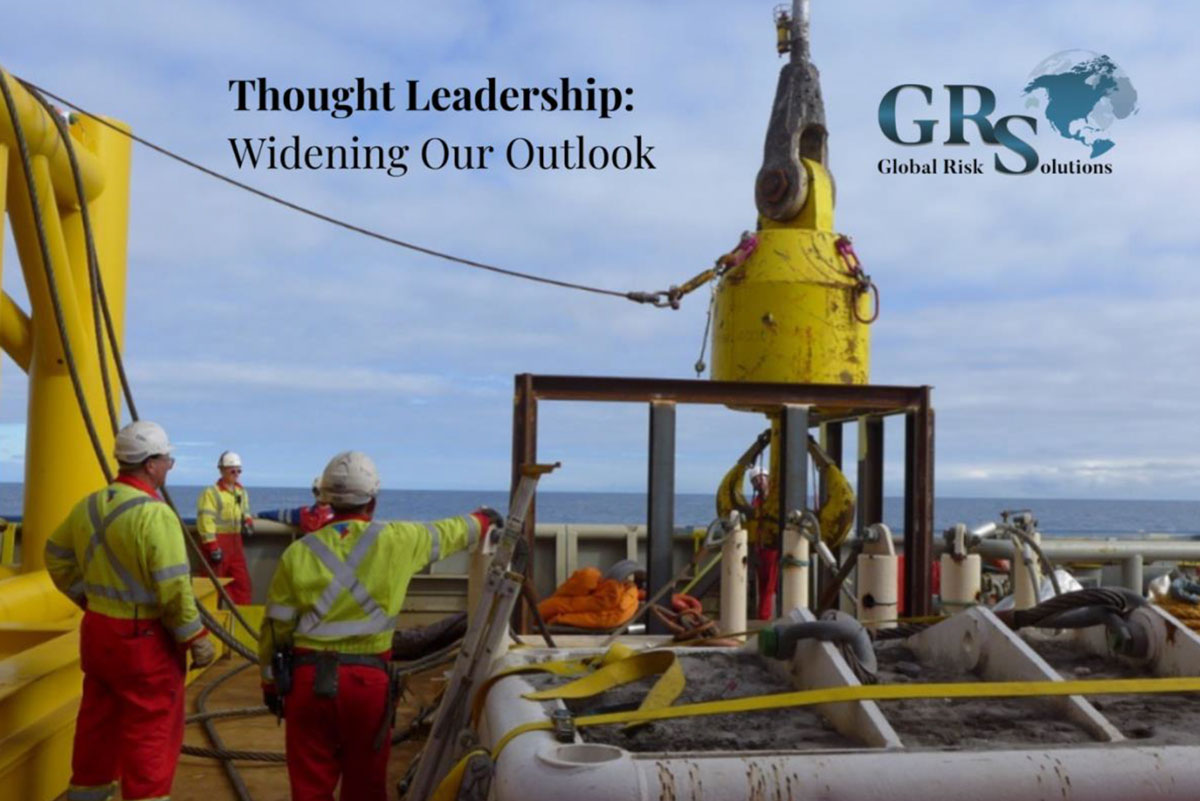By Joe Brennan (jbrennan@globalrisksolutions.com)
Why the industry needs widen it search for the new generation of adjusters
- External experience and skills will play a key future role
- Professional development and support at GRS
- Additional skills aid the ability of GRS to meet the needs of clients
The changing dynamics for the global energy industry will require a new set of skills and the loss adjusting sector cannot ignore the talent that can be accessed from outside of the insurance industry. The growing complexity within both upstream and downstream energy is being exacerbated by the huge increase in renewable energy investment. In many ways I am a case in point where a career in engineering became a career in loss adjusting major and complex risks within the team at GRS. Indeed the lessons I have learned and the skills I have been able to bring to my role highlight why the market needs to widen its horizons when looking for staff. The decision to make the significant career move from engineering to insurance was spurred largely by my desire to apply my 8 years of expertise to insurers in the market. I felt the time was right, not only for my own career progression and opportunity to broaden my field of experience, but I believed that I had skills that could be of benefit to the insurers and the insureds.

Having obtained an engineering degree I joined a structural repair company and during my time there worked alongside loss adjusters and insurers on a range of commercial claims. I then spent five years as a Project Engineer, managing and engineering offshore construction projects in the North Sea. With the downturn in the oil price and a desire to move back to London I decided to look for new opportunities outside of the oil and gas companies.
I spoke to a wide range of people including an energy insurance underwriter who suggested that with my career and experience insurance claims and loss adjusting may well be a good fit. During my time with the structural engineering company I had come across loss adjusters but did not realise that they had a role to play in the major oil and gas operations. I wrote to several, but the responses were almost all the same. “We are happy to talk to you when you have gained some experience of loss adjusting”. It was the classic chicken and egg situation. I had a huge amount of experience in the oil and gas industry during my time in Aberdeen but those skills, which I believed were transferable, could not be used unless I could gain loss adjusting experience from an industry which seemed unwilling to provide the chance to obtain it.

Thankfully 18 months later I met with Adam Humphrey who was building an energy team and agreed to take me on. From the outset it was made clear that I needed to continue my professional development outside of the day to day role. I was encouraged to finish my work to attain my chartered engineer status, and then begin my Chartered Institute of Loss Adjusting qualifications. That work is still ongoing with more CILA qualification on the radar alongside the Chartered Institute of Insurance.

I am delighted to be working for GRS and could not have achieved what I have in such a small space of time without the support of the team around me, many of which have been thought the CILA and CII qualifications and have been able to provide valuable insight into the process.
I have been able to transfer a huge amount of the skills I have as an engineer and from my time in the oil and gas sector to my role at GRS. It is surprising just how beneficial it has been to have, in effect, walked in the shoes of those on the other side of the claim. The ability to understand the construction sector, the stakeholders involved, project organisation, the timelines, and the equipment has been a huge bonus in my work. Like any industry most have acronyms and shorthand for many parts of their business. To be able to sit with the engineers and project managers and talk to them in a language they understand has been a huge help. I have been able to discuss with them why the cheapest and quickest route may not be the best, because it might not meet the criteria for their insurance cover. On the flip side I have also been able to work with the insurers to in effect translate the technical aspects of the projects or the losses and the language used by the insureds.

Without doubt the challenges that the insurance industry face with major and complex energy risks will only increase as new technology and regulation changes the way in which the world’s energy is provided. As my time with GRS had clearly demonstrated there is a growing need for experience and expertise and with demand set to grow the industry had to widen its search for the staff that will be required to meet those needs.

I have been fortunate that Adam and GRS recognised that the skills I could bring coupled with the support to achieve the relevant industry qualification will enhance the team and the ability we provide to help our clients make better decisions



